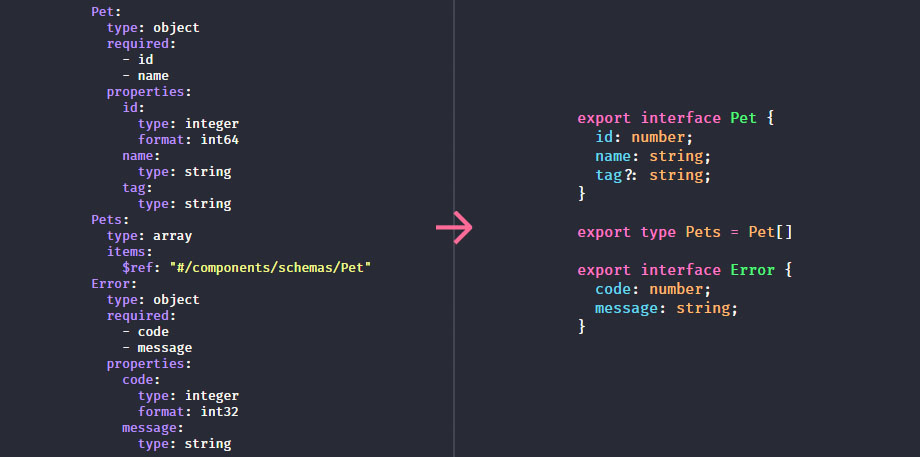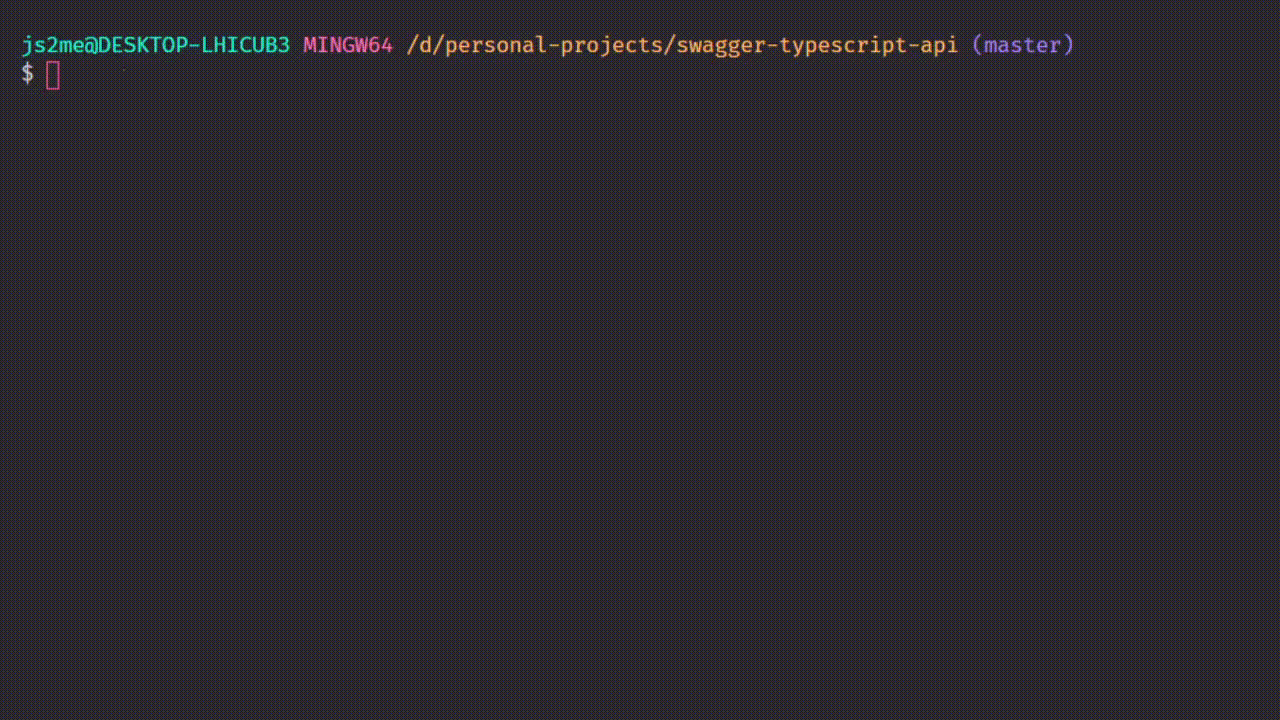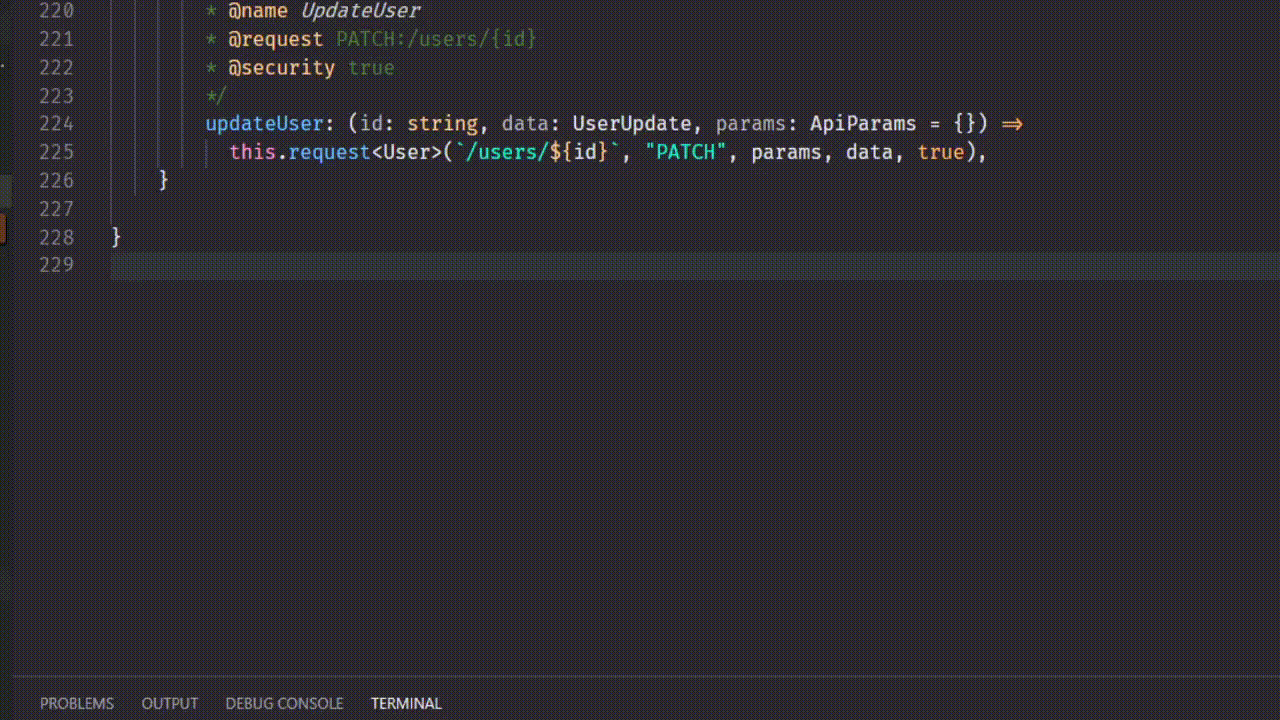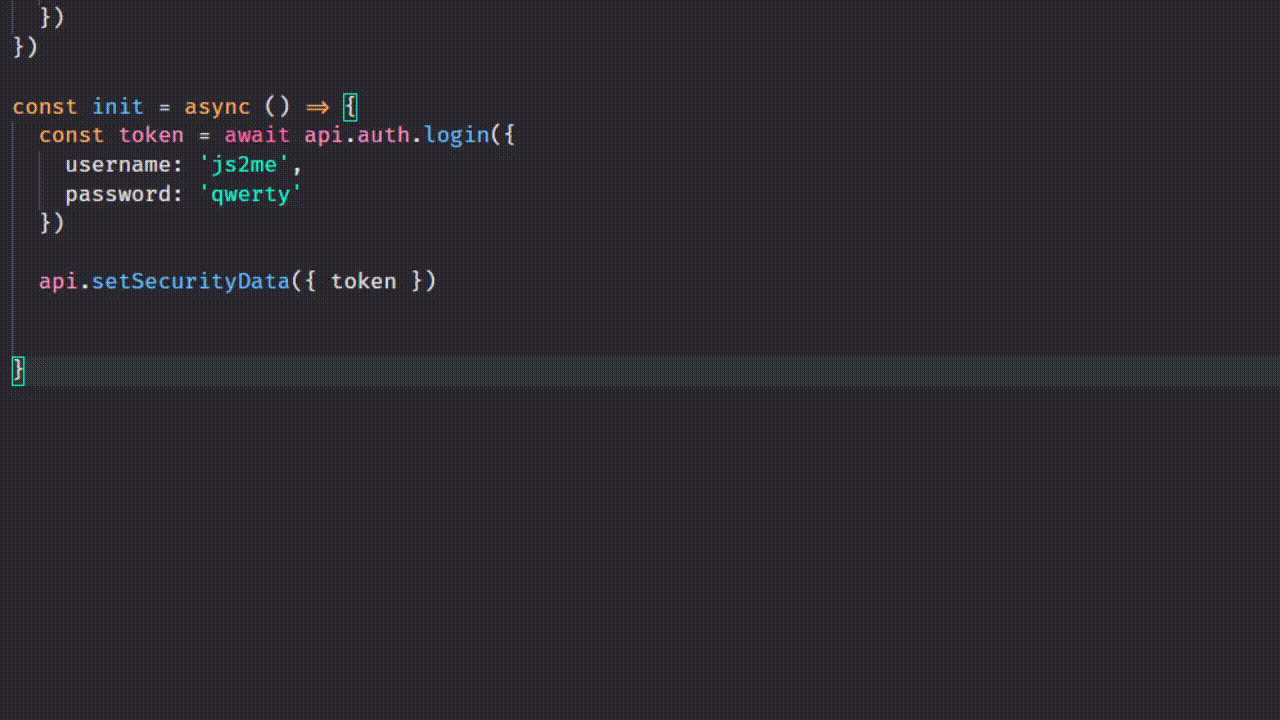Package Exports
- swagger-typescript-api
This package does not declare an exports field, so the exports above have been automatically detected and optimized by JSPM instead. If any package subpath is missing, it is recommended to post an issue to the original package (swagger-typescript-api) to support the "exports" field. If that is not possible, create a JSPM override to customize the exports field for this package.
Readme
swagger-typescript-api

Generate api via swagger scheme.
Supports OA 3.0, 2.0, JSON, yaml
Generated api module use Fetch Api to make requests.
Any questions you can ask here or in our slack(#swagger-typescript-api channel)

👀 Examples
All examples you can find here
📄 Usage
Usage: sta [options]
Usage: swagger-typescript-api [options]
Options:
-v, --version output the current version
-p, --path <path> path/url to swagger scheme
-o, --output <output> output path of typescript api file (default: "./")
-n, --name <name> name of output typescript api file (default: "Api.ts")
-t, --templates <path> path to folder containing templates (default: "./src/templates")
-d, --default-as-success use "default" response status code as success response too.
some swagger schemas use "default" response status code
as success response type by default. (default: false)
-r, --responses generate additional information about request responses
also add typings for bad responses
--union-enums generate all "enum" types as union types (T1 | T2 | TN) (default: false)
--route-types generate type definitions for API routes (default: false)
--no-client do not generate an API class
--js generate js api module with declaration file (default: false)
-h, --help output usage informationAlso you can use npx:
npx swagger-typescript-api -p ./swagger.json -o ./src -n myApi.tsYou can use this package from nodejs:
const { generateApi } = require('swagger-typescript-api');
// example with url
generateApi({
name: "MySuperbApi.ts", // name of output typescript file
url: 'http://api.com/swagger.json', // url where located swagger schema
})
.then(sourceFile => fs.writeFile(path, sourceFile))
.catch(e => console.error(e))
// example with local file
generateApi({
name: "ApiModule.ts", // name of output typescript file
input: resolve(process.cwd(), './foo/swagger.json') // path to swagger schema
})
.then(sourceFile => fs.writeFile(path, sourceFile))
.catch(e => console.error(e))
// example with parsed schema
generateApi({
name: "ApiModule.ts", // name of output typescript file
spec: {
swagger: "2.0",
info: {
version: "1.0.0",
title: "Swagger Petstore",
},
host: "petstore.swagger.io",
basePath: "/api",
schemes: ["http"],
consumes: ["application/json"],
produces: ["application/json"],
paths: {
// ...
}
// ...
}
})
.then(sourceFile => fs.writeFile(path, sourceFile))
.catch(e => console.error(e))
📄 Mass media
🚀 How it looks



🛠️ Contribution
You can manually check your changes at schemas in tests folder before create a PR.
To do that have scripts:
- npm run generate - generate API modules from schemas in tests folder
- npm run validate - validate generated API modules via TypeScript
📝 License
Licensed under the MIT License.
